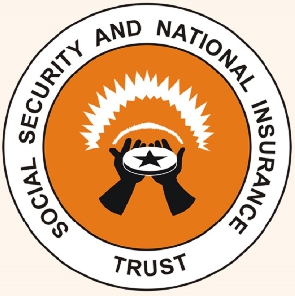Health News of Thursday, 18 October 2012
Source: dr. kojo cobba essel
Handwashing; A D.I.Y Vaccine!
It is a hot Monday afternoon, your day has been extremely busy and you started off on the wrong note; you missed breakfast in the morning. You have barely twenty minutes to finish lunch and join your colleagues in a meeting. You rush out onto the street and spot a young lady selling food by an open gutter. As you approach her, you realize she is cleaning her baby. There is no water for handwashing in sight and certainly no soap. She picks a cloth that at best can be described as a rag and wipes her hands. She immediately continues plying her trade – unsuspecting “victims” are still patronizing her meals. You are in a fix; should you buy this food, return to the meeting hungry and tired or look for an alternative? You are free to do anything except to buy and eat this food.
Human faeces are the main source of diarrhoeal germs that cause diseases including typhoid, cholera and Hepatitis A. Faeces also acts as “a reservoir” for germs causing influenza and pneumonia. Several years ago my professor in medical school commented that “whenever you have diarrhoea, it means you have eaten someone’s shit”, do excuse the language but this is as close to the truth as you can get. Many of the diarrhoeas we experience have their source as faeces. Cleaning your hands with soap and water after contact with faeces that may be from using the toilet or cleaning a child prevents the transmission of these diarrhoea causing germs. We need to remember that the contact may also be indirect such as a handshake or eating food prepared or served in the scenario above or eating food exposed to flies.
Measures such as proper handling of food, water purification and fly control have an impact on diarrhoeal and respiratory diseases as well but sanitation and handwashing provide the necessary protection. Handwashing with soap and water may not only reduce diarrhoea and respiratory infection but may also have a positive impact on skin and eye infections.
Handwashing prevents the transmission of a variety of disease-causing organisms and may be more effective than any single vaccine. If promoted on a wide enough scale, handwashing with soap can be thought of as a “do-it-yourself” (DIY) vaccine. If we make handwashing a habit and make soap and clean water available and affordable, we could save more lives than any single vaccine or medical intervention.
Today diarrhoeal diseases and respiratory tract infections are the two biggest killers of children in the developing world. Soap and water is often available in most homes but we would rather use them for bathing or washing clothes instead of using them to clean our hands. Just like lifestyle diseases including heart diseases can be prevented by basic lifestyle changes such as increasing our physical activity and eating properly, so also can we combat diarrhoeal diseases and many respiratory tract infections by adopting the easy to follow habit of handwashing with soap and water. This is the most cost-effective means of controlling these diseases. In addition it also reduces the time children will spend away from school due to illness. Adults should note that we are not exempt from this menace. It is worth noting that handwashing after using the toilet and before eating or preparing food can reduce diarrhoea risk by a whopping 45%.
It is important to emphasise that for any WASH (WAter, Sanitation, Hygiene) strategy to be successful, handwashing with soap and water should be made the focus. Though we should all encourage handwashing in our homes, churches, schools, markets, hospitals and every conceivable place, we may also need some political commitment and investment in this area. Availability of clean water in all corners of the country should be a priority. In addition to enforcing the presence of toilet facilities at home, public places of convenience SHOULD have soap and water for use. Imagine an area with no public toilets that also has no toilets in the homes; free-range becomes the order of the day. Have you ever heard of handwashing by a “free-ranger”? We are all at fault; our toilets at home may not even have soap for handwashing, our hospitals that preach hygiene also lack this basic ingredient and our offices and workplaces are almost always found wanting.
Global Handwashing Day, celebrated on the 15th of October is making a significant impact but we need not wait for one day in a year to remind ourselves that we can save lives, save money, spend more time at school or at work by simply adopting inexpensive habits. Let us all pledge to wash our hands with SOAP and WATER:
• AFTER using the toilet
• AFTER cleaning a child or adult
• BEFORE eating
• BEFORE cooking or handling food
• AFTER multiple handshakes e.g. after a funeral or party
Many of us are in the habit of washing our hands with only water, but that certainly is not enough. Some of us wash only one hand before a meal or after using the toilet; this certainly does not pass the test, it is not possible to clean a hand thoroughly, you will need to use both hands to get the job done effectively. In the rare event of not having enough soap or water to wash before and after a meal, kindly use “the scarce resource” before the meal. You will be protecting yourself from an illness.
AS ALWAYS LAUGH OFTEN, WALK AND PRAY EVERYDAY AND MAKE WASHING OF HANDS WITH SOAP AND WATER A HABIT.
Source:
Dr. Kojo Cobba Essel
Moms’ Health Club
(dressel@healthclubsgh.com)
*Dr Essel is a medical doctor and is ISSA certified in exercise therapy and fitness nutrition.
Thought for the week –“Clean Hands Save Lives; Always Wash Your Hands with SOAP & WATER and Encourage Others to Do the Same.”
Reference:
1. Globalhandwashing.org
2. Global Handwashing Day: Need for greater political commitment, investment and cooperation. (David Winder, CEO WaterAid)










